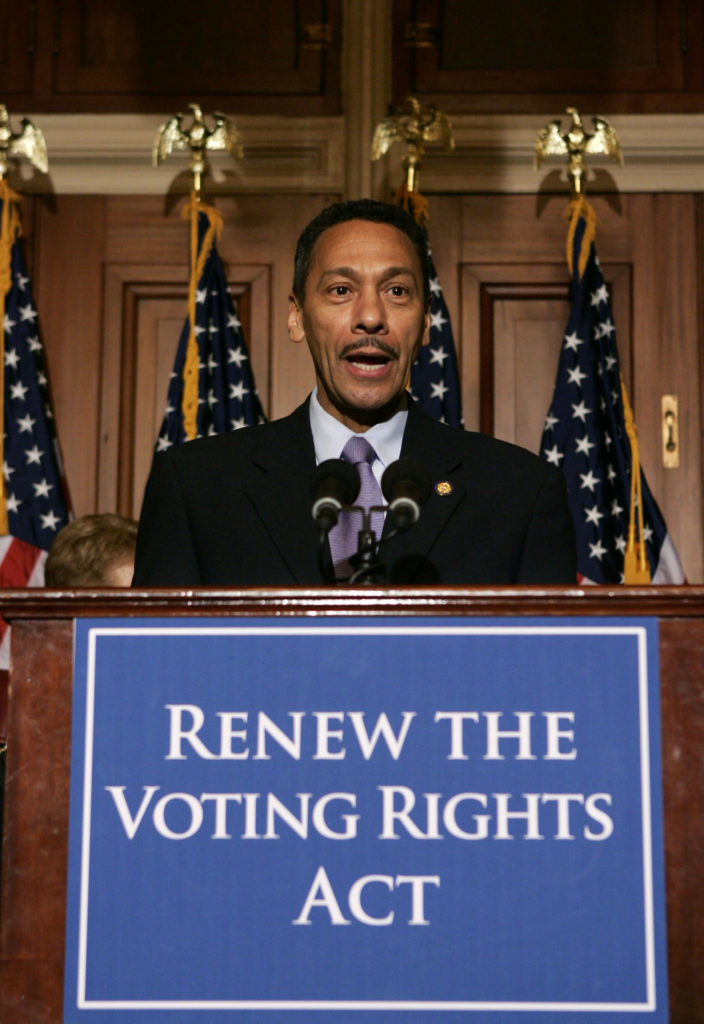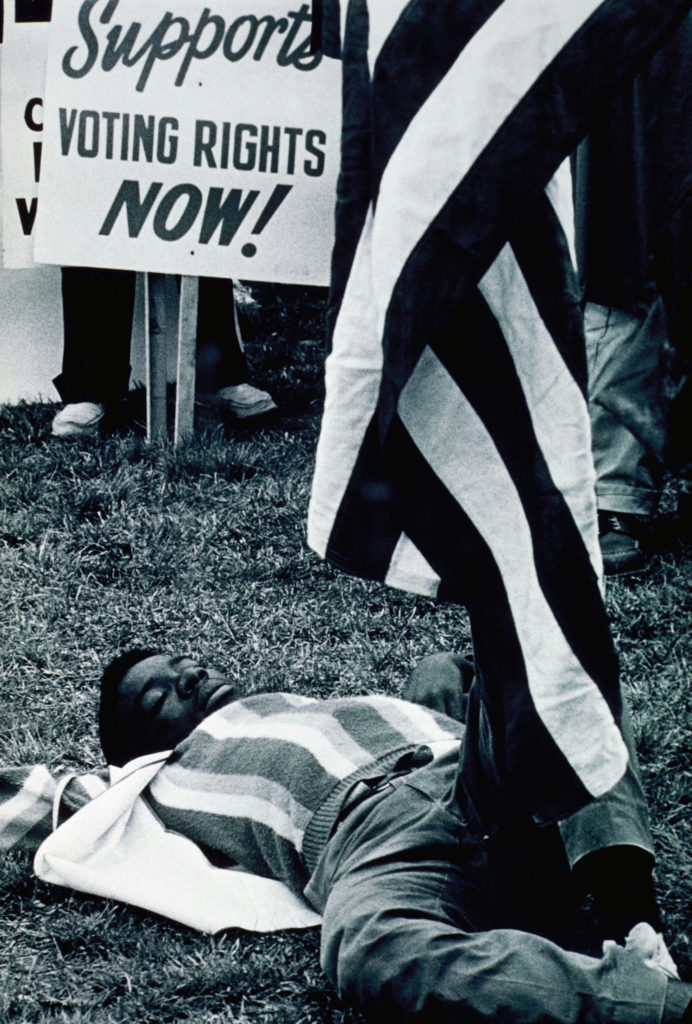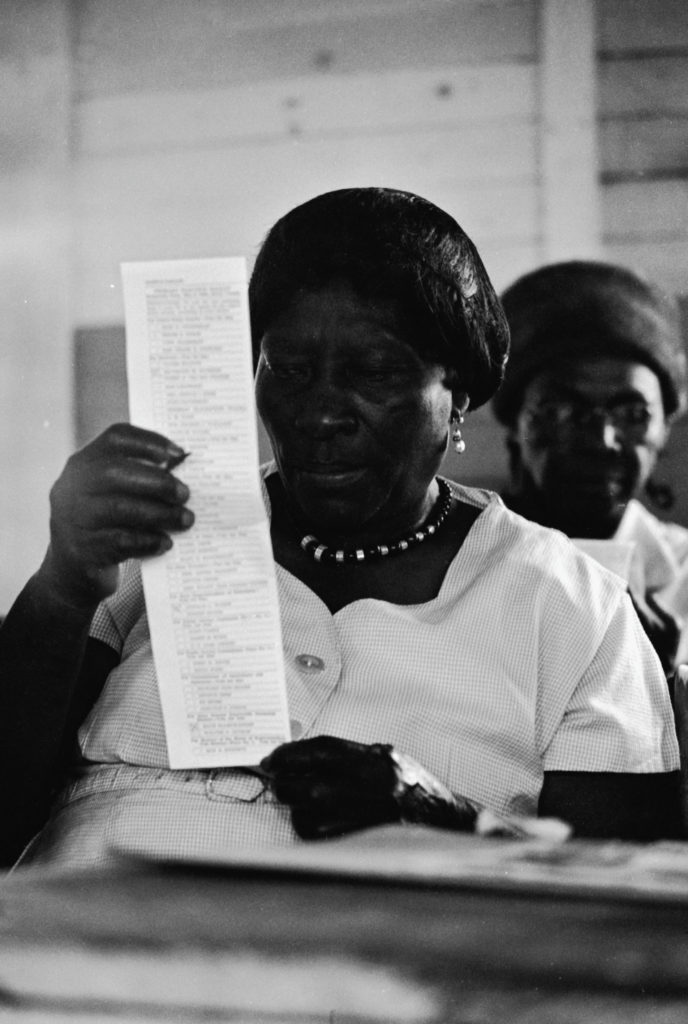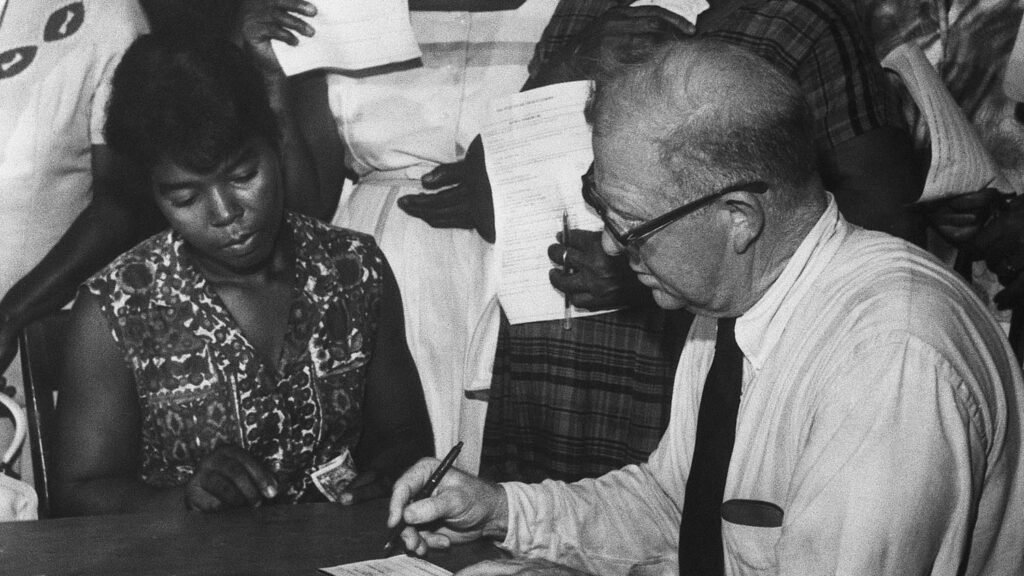Voting Rights Act
Learn how the CBC has spent years fighting tirelessly to protect the voting rights of underrepresented people.
The Voting Rights Act (VRA) of 1965 was a significant catalyst for the increase in Black congressional representation during the second half of the twentieth century. Considered one of the most important victories of the civil rights struggle, the VRA significantly increased access to the polls for African Americans, particularly in the South. Other factors—including Black migration to northern cities, white relocation to the suburbs, and redistricting—also contributed to the increase in Black congressional representation following the passage of the Act. Black participation in electoral politics resulted in a steady increase in the number of African American Congress members. In 1965, there were only six Black members of the House and no Black members of the Senate. A few years later, when the CBC was established in 1971, there were 13 African American serving in the House and one in the Senate. The 118th Congress (2023-2025) included 60 Black members of the House and four Black member of the Senate.
Despite this significant increase in Black congressional representation, the Congressional Black Caucus recognizes that the battle to ensure that the provisions of the Voting Rights Act are protected is far from over. While the right to vote is permanent, some key sections of the Voting Rights Act which protect that right are temporary. Without reauthorization, these provisions would expire. Black members of Congress have been at the forefront of VRA reauthorization efforts an continue to introduce and support policy that ensures all Americans have fair and equal opportunity to participate in the election process.




